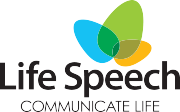Abstract: Acquiring motor skills is just one part of children’s development.
This article explains how both fine and gross motor skills are important for children’s growth and independence, and also empowers parents for early identification of gross and fine motor skills.
Do you Undergo the Following Problems with your Children?
- Is your child unable to turn his/her own head?
- Is your child unable to sit properly?
- Does your child face balancing problems while walking?
- Is your child unable to hold objects properly?
The following are few things where every parent of dyslexic child undergo.
- Why my child is unable to read properly?
- Why he/she is not showing interest in studies?
- Why they have poor attention towards classes?
- Why my child is unable to write properly?
- Why my child is having poor hand writing?
Introduction:
Does your child have trouble paying attention?
Does he or she talk nonstop or have trouble staying still?
Does your child have a hard time controlling his or her behavior?
For some children, these may be symptoms of attention deficit/hyperactivity disorder, or ADHD.
Definition:
ADHD is a common mental disorder that begins in childhood and can continue through adolescence and adulthood. It makes it hard for a child to focus and pay attention. Some children may be hyperactive or have trouble being patient. For children with ADHD, levels of inattention, hyperactivity, and impulsive behaviors are greater than for other children in their age group. ADHD can make it hard for a child to do well in school or behave at home or in the community.
This article is about autism spectrum disorder behaviors and its impact on children’s speech language and communication.
- Identify symptoms from group of children with autism
- Simple questionnaire for parents who have children with autism and behavioral problems.
AGES 0-3 MONTHS
- Looks intently at a speaker
- Listens to voices
- Establishes eye contact with mother
- Quiets when held and also quiets when hears human voice (1 month)
- Makes going or gutteral sounds (2 months)
- Visually searches for sounds (3 months)
- Smiles spontaneously (1 month)
- Turns when hears human voice (3 months)
- Responds vocally to the speech of others (3 months)
- Makes predominantly vowel sounds (3 months)
- Coos single sound syllables (consonant vowel)
- Vocalises to indicate pleasure and displeasure
- Laughs, gurgles, squeals, cries, screams
- Responds to familiar faces – visually discriminates different people and things and recognises mother (3 months)
- Begins exploratory play- explores own body (3 months)


